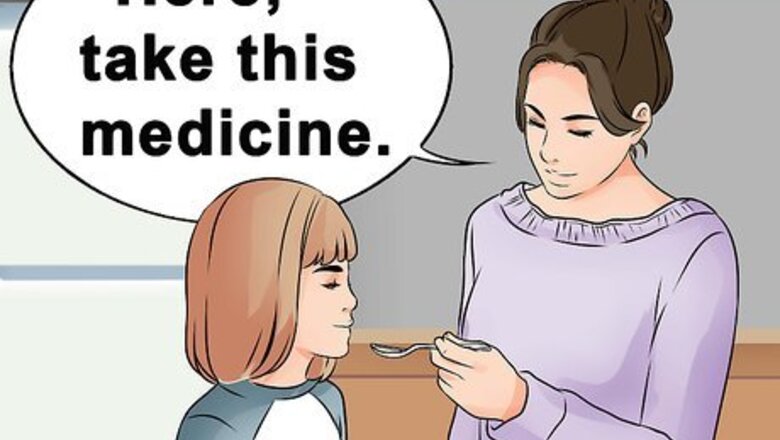
views
Motivating the Child
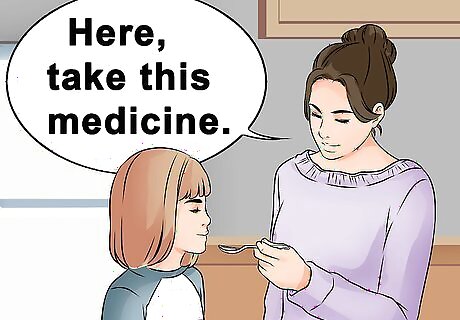
Start positive. If you make something sound bad, the child will think the same thing. For the first dose of a new medicine, say something like, “Time to take your new medicine. This is going to help you feel better!” Stay relaxed, smile, and talk in an upbeat voice. If the kid refuses, call the medicine "super drops" or "strong pills.” You can even tell them that their favorite character from a movie or book took medicine to become strong, smart, or fast. Never threaten your child or make it seem like any kind of medical treatment is a punishment. For instance, don’t say things like, “If you don’t take this medicine, we’ll have to take you to the doctor, and they’ll give you a shot!”
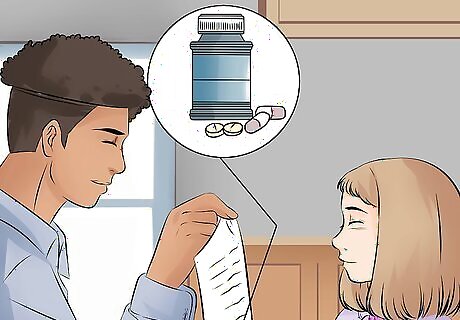
Explain what the medicine is for. Tell your child why the medicine is a good thing. Look up the details and try to explain them in simple terms. Pictures might help get your kid interested. This works best for older children, but it can work for more logical young kids too.
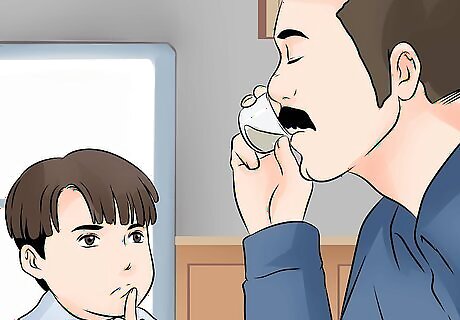
Pretend you like it. Show the child what to do by bringing the medicine to your lips and pretending to take it. Say something like "yum!" and smile. This is not always effective, but it's an easy first step for young kids. You can pretend to feed a stuffed animal too. You could say, “Teddy likes it, and now she feels so much better, too!” For older children, give yourself a cup of "medicine" that's really fruit juice. If you’re trying to teach them to swallow a pill, you can demonstrate by swallowing a pill of your own (such as a vitamin or medication you normally take). Say something like, “See? It’s really easy!”
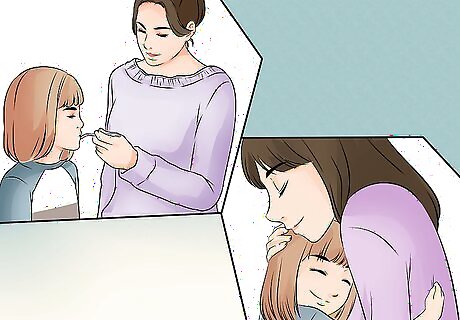
Offer a reward. Pick something the child wants, and it will be a strong incentive. Try candy, extra TV time, or a sticker on a reward chart that leads to a bigger prize. For some children, verbal praise can be enough. Just be aware that older children might start expecting a reward every time, or demanding more. You can give hugs and kisses, but don't offer them in advance as a reward. If the child doesn't cooperate and you refuse to hug, this can lead to bad feelings and more stubborn behavior.
Teach kids to take pills from an early age. Pills can seem scary to older kids, who might be afraid of choking or getting the pill stuck in their throat. If you have the option to give your younger child a medication in pill form instead of as a liquid, do so—that way, they’ll learn early on that taking pills is no big deal, before they have a chance to start feeling scared. Most kids can start taking pills as young as 4 or 5 years old.
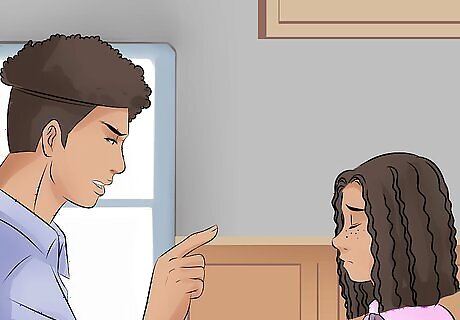
Use punishment only as a last resort. This often leads to power struggles, making the child more stubborn. Use it only after extreme misbehavior, like hitting, kicking, or other aggressive behavior or when the medicine is very important to their health. Let the child know that if they do not take the medicine, you will take away a favorite activity or event.
Making Medicine Taste Better
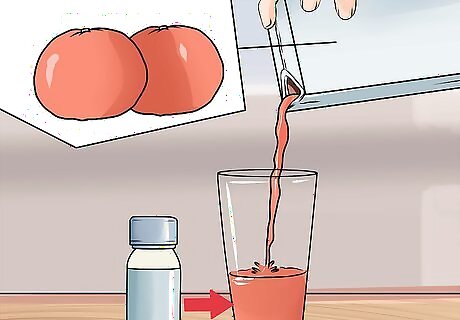
Combine medicine with chilled fruit juice or smoothie. The colder and sweeter the drink, the more it will hide bad tastes. You can measure out liquid medicines and mix them directly into the drink. Have your child wash pills down with the drink instead of mixing the pills in. Always ask your child’s pediatrician before mixing any kind of medication with juice or milk. Check the medication label first for "contraindicated" substances. These make the medicine less effective. Grapefruit juice affects many medications, while milk affects some antibiotics. If you try this, make sure your child drinks the entire mixture. Otherwise, they won’t get a full dose of medicine. Try mixing the medicine with a very small amount of the liquid so it will be easier for your child to drink it all.
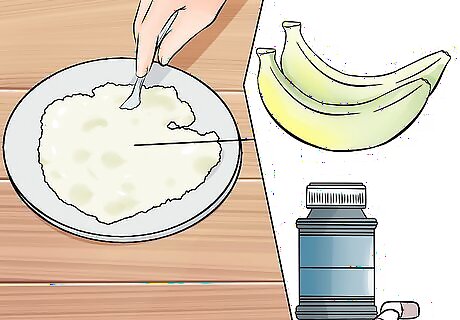
Hide the medicine in food. Crush the pill and mix it with applesauce or mashed bananas. The child can't complain if they don’t know it's there! If your child catches on, admit it's there and say you just wanted to make it taste good. Check the medicine label to make sure it can be eaten with food.
Try injecting liquid medicine into candy. Tell your doctor or pharmacist what you’d like to do, and ask for a syringe. Inject the medicine into a soft, sweet candy, such as peanut butter cups. The sweetness of the candy will help disguise the taste of the medicine. Always ask your child’s doctor or pharmacist before trying something like this. Make sure it’s safe to mix the medication with food or drink.
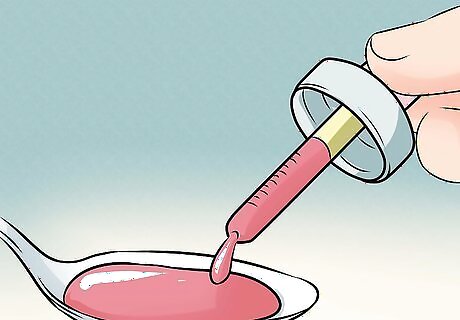
Add medicine flavoring drops to liquid doses. These drops increase sweetness and suppress some bitter tastes. Let your child choose the flavor. You may be able to get these drops from your doctor’s office or pharmacy. You can also order them online. Check with your child’s doctor to find out if it’s safe to use flavoring drops with your child’s medication.
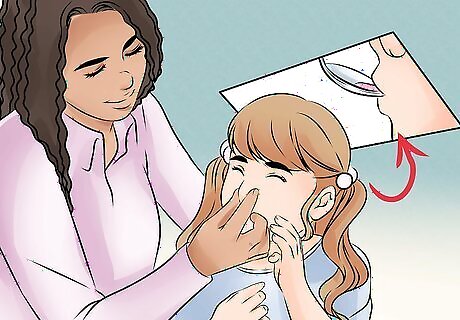
Pinch the child's nose shut. This will make it harder for them to taste the medicine. For older kids, you can explain that pinching their nose might help and have them pinch thier own nose. If you’re trying to give medicine to a younger child, pinching their nose can also make it easier to get the medicine into their mouth, since they’ll have to open their mouth to breathe.
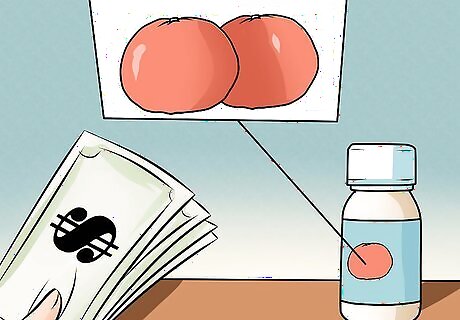
Try a new flavor of medicine. If the medicine is cheap and sold over the counter, buy another bottle from the child's section. There are usually several fruit flavors available. You can also ask your pharmacist if other flavors are available if your child is taking a prescription medicine. Some kids like the adult versions, with no added sugar. Make sure you use a child-size dose, however.
Giving Medicine to a Resistant Child
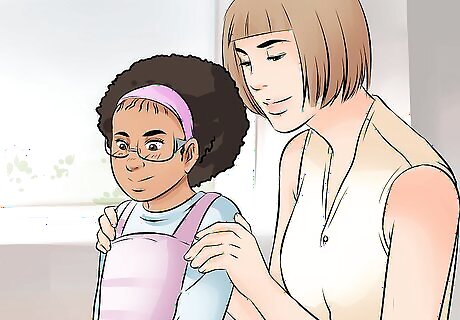
Use gentle restraint as a last resort. You may need to attempt this when a child is too young to understand why they need to take medicine. Use this only after trying everything else, and only for important medicine, such as antibiotics.
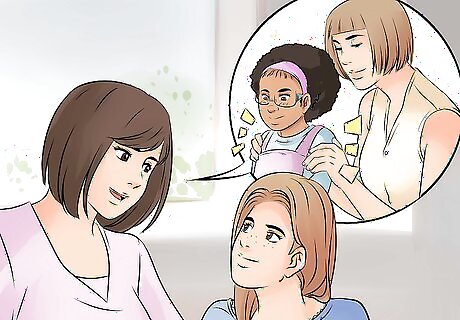
Explain what you'll do. Tell the child you will hold them still and give them the medicine. Explain why it's so important that you have to do this. Give them one last chance to comply.
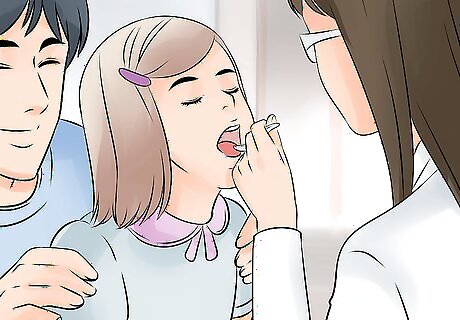
Have someone hold the child still. If possible, get another family member to gently hold the child's arms at their sides. They may need to pin the child’s arms with one arm and hold the child’s head still with their free hand. Make sure the child is sitting up! They could choke on the medicine if they are lying down.
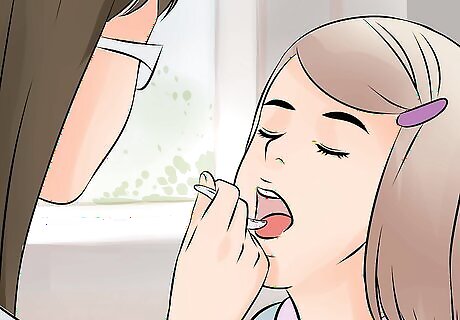
Give the medicine slowly. If you need to, pinch their nose to get their mouth open. Feed them the medicine slowly, so they don’t choke. Use a plastic syringe for young children. Aim it into the cheek to avoid choking. Never squirt the medication directly into the back of your child’s throat. You may need to hold the child’s mouth shut until they swallow.
Hug your child and apologize. Being forced to take medicine is upsetting for any child. When you’re done, soothe them and explain why you did it. Say something like, “I’m sorry we had to hold you like that, but it’s really important for you to take your medicine. We won’t have to do that next time if you help us.” You can also give them a small reward, like a sticker, a special treat, or an activity they enjoy. Praise them for being brave and taking their medicine, even if they didn’t do it willingly.



















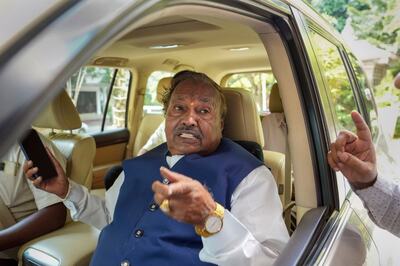
Comments
0 comment